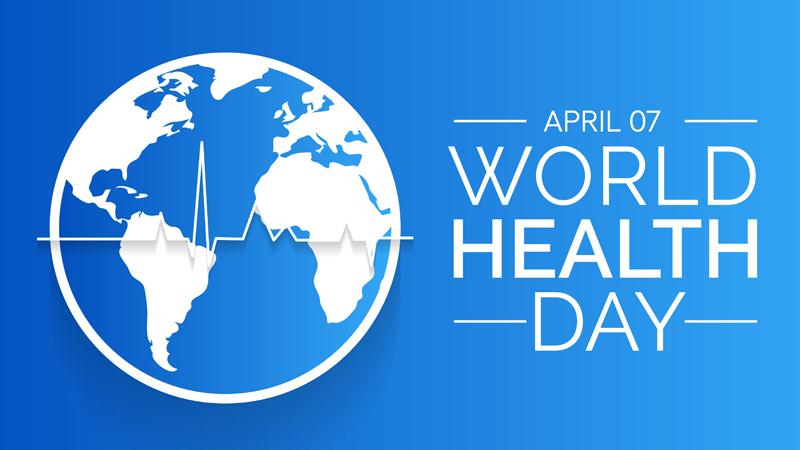The University of Westminster’s world-leading and internationally excellent research achieves impact that is recognised inside and outside of academia. For World Health Day 2022, the World Health Organisation is focusing global attention on urgent actions needed to keep humans and the planet healthy. To mark World Health Day, we take a look at examples of research by Westminster research bodies focused on health topics in a variety of disciplines.

Research Centre for Optimal Health
The internationally recognised Research Centre for Optimal Health (ReCOH) has published high impact articles on the application of MRI to investigate all aspects of metabolic disease for over 20 years. The Centre was established in 2014 to deepen our understanding of the lifestyle-induced accelerated ageing and disease processes and to use this knowledge to deliver practical solutions to achieve optimal health throughout adult life.
The group comprises of a number of top scientists with expertise in the areas of metabolism, biochemistry, magnetic resonance imaging and precision phenotyping, with a special focus on artificial intelligence (AI). Members of the ReCOH have been integral in developing and applying the abdominal MRI sequence currently employed by the UK Biobank and other research centres across Europe, Asia and Africa.
Recent examples of research from the ReCOH include a study in collaboration with Calico Life Sciences, which found that the severity of COVID-19 infection is associated with body composition. The results of the severity analysis using MRI scans showed that having elevated visceral and liver fat, as well as a smaller iliopsoas muscle volume (the major mover of the hip joint), made severe disease more likely. Another recent study found that ageing happens faster than you might think and revealed that after just two years, significant changes can be identified in the average person’s body composition, despite their body weight remaining unchanged.
Through their work, the Centre hopes that people will be encouraged to pay attention to their lifestyle in a more systemic manner, including staying active and reducing harmful lifestyle choices to reduce risk of disease and decelerate the ageing process.
Food Nutrition and Public Health Research Group
The Food Nutrition and Public Health Research Group’s interest and experience mirror the range of current nutrition concerns, including nutritional epidemiology and interventionist research in a variety of global contexts, food safety, nutrition and lifestyle performance, public concerns about the UK food system and under-nutrition.
At present, the research group works to carry out research into public health nutrition, food security, infant and young child feeding and malnutrition, including hidden hunger and obesity. The research group is currently collaborating with the Future of Public Health Nutrition coalition regarding PHN services in the UK.
A recent study from the research group led by Dr Regina Keith explored the impact of the COVID-19 pandemic on public health nutrition services in England. It found that the pandemic has pushed the poorest into further poverty and food insecurity. They argued that a more effective strategy is urgently needed to address the ongoing hunger crisis.
In 2021, Anna Krivtsova and Dr Keith also analysed the factors influencing infant and young children feeding perceptions and practices of working mothers in London and found that increased information and support on all aspects of infant feeding could help the UK achieve their 2025 target of increasing the percentage of infants worldwide who are exclusively breastfed to 50%.
Centre for Nutraceuticals
The Centre for Nutraceuticals is a first-of-its-kind initiative globally that seeks to act as a catalyst for improving health and wellbeing guided by research and innovation, with focus areas including supplementation and functional foods, nutrition, public health and formulation science and nanotechnology.
The Centre for Nutraceuticals launched in 2021 with a partnership with elite athletes to create a new supplement range to help people reach their performance goals, with a credible scientific foundation behind the products. The power blends the Centre created focus on peak performance in the areas of training, performance and recovery.
The Centre has also conducted world leading randomised controlled human volunteer studies to test and evaluate supplements. Results from a recent trial demonstrated for the first time that that taking iron and curcumin supplements together can lead to increased circulating levels of a brain protein that is associated with memory and cognition. They also found that taking iron supplements combined with curcumin can also reduce the occurrence of side effects that are frequently encountered while taking iron supplements for iron deficiency and anaemia.
Through its established expertise, the Centre seeks to be a globally recognised source of scientifically validated knowledge to better inform governments, regulatory bodies, the industry and consumers about health and wellbeing.
Translational Psychology Research Group
The Translational Physiology Research Group specialises in moving research from benchtop and cellular research findings into both healthy human ageing and clinical diseases associated with ageing. Their work bridges in vitro (in glass) and in vivo (within a living organism) research models, and has both basic science and direct clinical applications. Their ability to demonstrate proofs of concept in vitro before graduating into human participants, or to test a mechanistic hypothesis arising from human research in an in vitro model to is a particular strength of this group. The Group is primarily interested in understanding how and why ageing occurs, what aspects of ageing can be prevented or delayed, and how we can leverage this understanding to maximise human health and lifespan.
Translation is core to the group’s work. A core aspect is translating research and findings between the benchtop and into humans, between basic and clinical science, and bridging between different specialisms of scientists who otherwise wouldn’t work together. Translation of the Group’s work between academic and non-academic setting is also key, with research members frequently participating in media and science communication outside of university settings.
Find out more about research at the University of Westminster.


